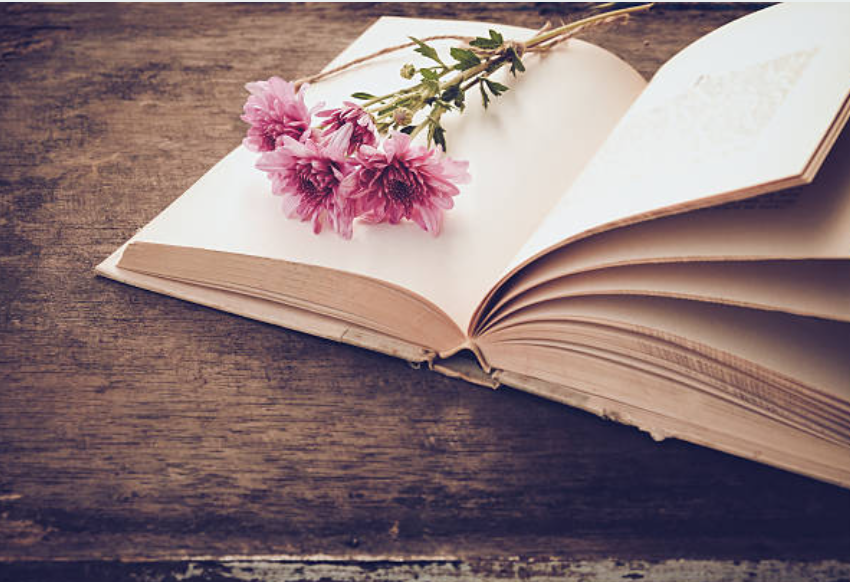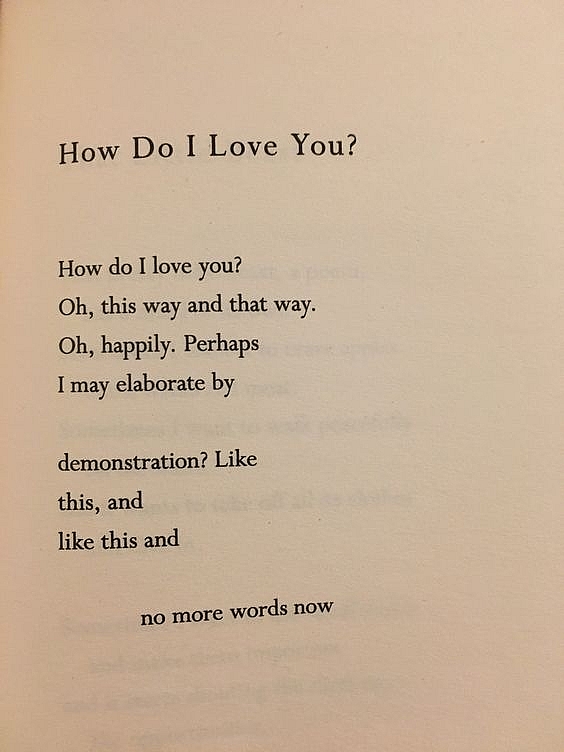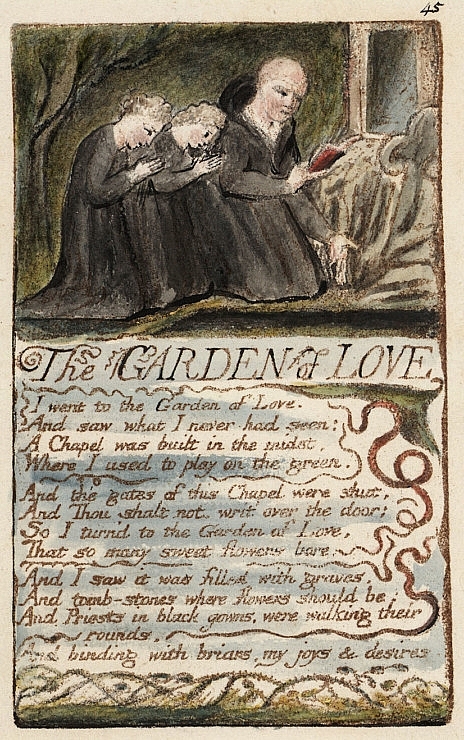10 Most Famous Short Love Poems That Easy to Memorize and Read
 |
| Top best short love poems that easy to read |
| Table Content |
How to Choose the Best Short Love Poems of All Time
In fact, many famous love poems are quite long, but you can still find some short romance poems from famous poets.
A love poem can be brief and still express to someone how much you love them. Short, sweet love poems can be read for birthdays, Valentine's Day or for any occasion where you want to show a loving sentiment in a creative yet succinct way. Explore famous short love poem examples and learn how to write your own.
Every poetry-lover’s list is going to be slightly different, of course, but here we’ve tried to find the best romantic poems. Many of the classic short love poems included below are considerably shorter than this. All ten poems in this selection sing love’s praises – we’ve covered poems about lost love and break-ups in a separate list – but we think most of them will be firm favourites among the ‘loved up’, whether you’re looking for a great love poem for Women's Day, Valentine’s Day, etc.
10+ Best Short Love Poems from Famous Authors, Easy to Read and Memorize
1.Sonnet 29 by William Shakespeare
Yet in these thoughts my self almost despising,
Haply I think on thee, and then my state,
Like to the lark at break of day arising
From sullen earth, sings hymns at heaven’s gate;
For thy sweet love remembered such wealth brings
That then I scorn to change my state with kings.
Sonnet 29 is one of the best sonnets written by William Shakespeare. It is famous for its themes of love and hopelessness. It was first published in 1609. The poem speaks about an unfortunate man, frustrated with the present state of his life. It also illustrates the power and impact of true love.
Anxiety, love, and jealousy are the major themes of this sonnet. The poet discusses his miserable plight and the impact of love. The poem also explains how love brings optimism and hope for people who feel lonely and oppressed. In short, sonnet 29 is also about self-motivation.
Like many of Shakespeare’s sonnets, “Sonnet 29” is a love poem. However, instead of focusing on the physical beauty of the love interest or the poet’s erotic desire, “Sonnet 29” describes the power of love to help the speaker remain strong even in the midst of self-doubt. In this sonnet, love compensates for physical shortcomings, emotional injuries, and personal setbacks, becoming something greater than infatuation or sexual attraction. The poem describes all the ways that the speaker is made to feel unworthy or self-conscious: his financial failings, his lack of friendships, the jealousy he feels towards others for what they have. But when the speaker is reminded of the poem’s addressee, he feels so comforted and emboldened that he would not trade his life for a king’s.
William Shakespeare was a renowned English poet, playwright, and actor born in 1564 in Stratford-upon-Avon. His birthday is most commonly celebrated on 23 April (see When was Shakespeare born), which is also believed to be the date he died in 1616.
Shakespeare was a prolific writer during the Elizabethan and Jacobean ages of British theatre (sometimes called the English Renaissance or the Early Modern Period). Shakespeare’s plays are perhaps his most enduring legacy, but they are not all he wrote. Shakespeare’s poems also remain popular to this day.
Shakespeare died in Stratford-upon-Avon on 23 April 1616 at the age of 52. He is buried in the sanctuary of the parish church, Holy Trinity.
Top 10 Best and Greatest Poems In English Language Of All Time
2.‘My true love hath my heart, and I have his’ by Sir Philip Sidney
My true love hath my heart, and I have his,
By just exchange one for the other given:
I hold his dear, and mine he cannot miss;
There never was a bargain better driven.
His heart in me keeps me and him in one …
Sir Philip Sidney (1554-86) was a Renaissance man: an Elizabethan soldier, statesman, and poet, who also wrote one of the first long works of prose fiction (some say one of the first novels) in English literature. But he is chiefly remembered now for his poetry, and ‘My true love hath my heart, and I have his’ is one of his most widely anthologised love poems.
The poem is easy to summarise. The speaker states that she and her lover have pledged their hearts to each other, and it’s the best exchange or ‘bargain’ that could have been contrived. By exchanging their hearts with each other and pledging themselves to the other, the two lovers guide each other and make them two hearts in one. The shepherdess tells her that her lover’s heart was ‘wounded’ when he saw her, because Cupid, the Roman god of love, shot him with his arrow and afflicted him with love for the shepherdess. When the shepherdess saw that her love was wounded with love for her, she fell for him.
Sidney’s shepherdess is essentially saying (using the word ‘hurt’ to twist ‘heart’ slightly out of shape) that both lovers, seeing the other afflicted with love, were themselves afflicted: in other words, it was mutual attraction from the word go: ‘Just at the moment he was wounded with love for me, so, it seems to me, the very wound of love that afflicted him did then afflict me.’
What is the shortest love poem called?Haikus are some of the shortest poems available since they are only three lines long. Here is a love haiku by Sandy Maloof called “Forever Love.” Forever Love"Friends forever in time Bonded by our hearts and souls Love forever lasting!" |
3.How Do I Love You? by Mary Oliver
 |
| How do I love you - love poem |
"How do I love you?
Oh, this way and that way.
Oh, happily. Perhaps
I may elaborate by
demonstration? Like
this, and
like this and
no more words now"
Mary Oliver also had her own take on love. See how she wove words of love through “How Do I Love You?”
The New York Times cknowledged Mary Oliver as “far and away, this country’s best-selling poet.” Born in a small town in Ohio, Oliver published her first book of poetry in 1963 at the age of 28; No Voyage and Other Poems, originally printed in the UK by Dent Press, was reissued in the United States in 1965 by Houghton Mifflin. Oliver has since published many works of poetry and prose (the complete list appears below).
As a young woman, Oliver studied at Ohio State University and Vassar College, but took no degree. She lived for several years at the home of Edna St. Vincent Millay in upper New York state, companion to the poet’s sister Norma Millay. It was there, in the late ’50s, that she met photographer Molly Malone Cook. For more than forty years, Cook and Oliver made their home together, largely in Provincetown, Massachusetts, where they lived until Cook’s death in 2005.
Over the course of her long and illustrious career, Oliver has received numerous awards. Her fourth book, American Primitive, won the Pulitzer Prize for Poetry in 1984. She has also received the Shelley Memorial Award; a Guggenheim Fellowship; an American Academy and Institute of Arts and Letters Achievement Award; the Christopher Award and the L.L. Winship/PEN New England Award for House of Light; the National Book Award for New and Selected Poems; a Lannan Foundation Literary Award; and the New England Booksellers Association Award for Literary Excellence.
Oliver’s essays have appeared in Best American Essays 1996, 1998, 2001; the Anchor Essay Annual 1998, as well as Orion, Onearth and other periodicals. Oliver was editor of Best American Essays 2009.
Oliver’s books on the craft of poetry, A Poetry Handbook and Rules for the Dance, are used widely in writing programs. She is an acclaimed reader and has read in practically every state as well as other countries. She has led workshops at various colleges and universities, and held residencies at Case Western Reserve University, Bucknell University, University of Cincinnati, and Sweet Briar College. From 1995, for five years, she held the Catharine Osgood Foster Chair for Distinguished Teaching at Bennington College. She has been awarded Honorary Doctorates from The Art Institute of Boston (1998), Dartmouth College (2007) and Tufts University (2008). Oliver currently lives in Provincetown, Massachusetts, the inspiration for much of her work.
4.‘To My Dear and Loving Husband’ by Anne Bradstreet
If ever two were one, then surely we
If ever man were loved by wife, then thee.
If ever wife was happy in a man,
Compare with me, ye women, if you can.
I prize thy love more than whole mines of gold,
Or all the riches that the East doth hold.
My love is such that rivers cannot quench,
Nor ought but love from thee give recompense.
Thy love is such I can no way repay;
The heavens reward thee manifold, I pray.
Then while we live, in love let’s so persever,
That when we live no more, we may live ever.
"To My Dear and Loving Husband" is a poem by the Colonial American poet Anne Bradstreet. Standing at just twelve lines long, it was written by the first poet in America to have a book of poems published –The Tenth Muse published in 1651.
Bradstreet praises her ‘dear and loving husband’, whom she regards as her complement: his love is more valuable to her than all the riches of the East, all the gold in the world. Her love for him, too, can never be exhausted.
The poem was first published in 1678, as part of Bradstreet's posthumous collection Several Poems. Bradstreet was the first poet—and the first woman—in colonial America to write and publish a book of poems. The poem is autobiographical and describes the passionate love between the speaker and her husband. The speaker describes that love as pure and redemptive. The poem thus implicitly argues against some religious poets who describe love as a sinful or unholy act.
5.‘Upon Julia’s Clothes’ by Robert Herrick
Whenas in silks my Julia goes,
Then, then, methinks, how sweetly flows
The liquefaction of her clothes.
Next, when I cast mine eyes and see
That brave vibration each way free
O how that glittering taketh me!
Robert Herrick (1591-1674) was an English Cavalier poet, whose 1648 collection Hesperides contains much of his great poetry. Algernon Charles Swinburne called Herrick the ‘greatest songwriter ever born of English race’.
These poems, like ‘Upon Julia’s Clothes’ eroticize this woman through images that might today not seem particularly sexual. The poem was first published in Hesperides, Herrick’s 1648 collection.
Historically, scholars are unsure who “Julia” was or if she was a real person at all. The name might stand in for Herrick’s idealized woman or could represent any number of women he knew in his life.
The speaker expresses his longing for Julia by describing the water-like nature of her clothes. He is especially aroused when she wears silk and he can watch the way it moves over her body.
A poem comprising just two triplets, rhymed aaa and bbb, and just two sentences.
One is that the poem is deceptively simple. It seems, in summary, to be simply a description of the woman’s silken clothing, and its pleasure-inducing effects on our poet. The ‘vibration’ and ‘glittering’ may be the result of Julia’s gracefully moving about, her silken garments shimmering in the light.
The second stanza changes the end rhyme to the long “e” vowel sound in “see,” “free,” and “me”. Herrick’s speaker, who may be Herrick himself, states without much detail how he is “taken” by the sight of the “vibration” of her clothes. It is important to note that while he is appreciating the clothes themselves he is truly speaking about her body underneath them.
6.To Lose Thee, Sweeter Than to Gain by Emily Dickinson
 |
| Best Love Poems of All Time |
To lose thee, sweeter than to gain
All those hearts I knew.
It is true the drought is destitute,
But then I had a dew!
The Caspian has its realms of sand,
Its other realm of sea;
Without the sterile prerequisite
No Caspian could be.
Emily Dickinson (December 10, 1830–May 15, 1886) was an American poet best known for her eccentric personality and her frequent themes of death and mortality.
She is first and foremost a nature poet who through robins, bees and flowers expounds profound truths about love, life, death and immortality. Her concise poems manage to pack the hardest punch.
Although she was a prolific writer, only a few of her poems were published during her lifetime. Despite being mostly unknown while she was alive, her poetry—nearly 1,800 poems altogether—has become a staple of the American literary canon, and scholars and readers alike have long held a fascination with her unusual life.
This bittersweet poem on pain going hand in hand with pleasure illustrates Tennyson’s famous lines that ” ‘Tis better to have loved and lost than never to have loved at all.” Where there is love, there is loss but there is something sweet about the loss too. The speaker is bereft but she was lucky enough to have had something to lose. Being in drought makes her appreciate the dew or the contrasting emotion of elation she once enjoyed.
7.The Falling of Leaves (1889) by William Butler Yeats
 |
| The falling of the leaves |
Autumn is over the long leaves that love us,
And over the mice in the barley sheaves;
Yellow the leaves of the rowan above us,
And yellow the wet wild-strawberry leaves.
The hour of the waning of love has beset us,
And weary and worn are our sad souls now;
Let us part, ere the season of passion forget us,
With a kiss and a tear on thy drooping brow.
William Butler Yeats [1865-1939] is one of Irelands most revered poets and playwrights. His work has been widely circulated and anthologised. As poetry and as song a number of his poems have been recorded and also used on radio, TV and films.
“The Falling of the Leaves” was originally published as “Falling of the Leaves” in The Wanderings of Oisin and Other Poems (Kegan Paul, Trench & Co., 1889) and later appeared in Crossways (Kegan Paul, Trench & Co., 1889) and Poems (T. Fisher Unwin, 1895).
He Wishes for the Cloths of Heaven’ by W. B. YeatsBut I, being poor, have only my dreams; I have spread my dreams under your feet; Tread softly because you tread on my dreams … The gist of this poem, one of Yeats’s most popular poems, is straightforward: if I were a rich man, I’d give you the world and all its treasures. If I were a god, I could take the heavenly sky and make a blanket out of it for you. But I’m only a poor man, and obviously the idea of making the sky into a blanket is silly and out of the question, so all I have of any worth are my dreams. And dreams are delicate and vulnerable – hence ‘Tread softly’. This is one of the finest very short love poems in the language, and a firm favourite with many readers. |
8.The Garden of Love by William Blake
 |
| The Garden of Love - Original Illustration by William Blake |
I went to the Garden of Love,
And saw what I never had seen:
A Chapel was built in the midst,
Where I used to play on the green.
And the gates of this Chapel were shut,
And 'Thou shalt not' writ over the door;
So I turn'd to the Garden of Love,
That so many sweet flowers bore.
And I saw it was filled with graves,
And tomb-stones where flowers should be:
And Priests in black gowns, were walking their rounds,
And binding with briars, my joys & desires.
"The Garden of Love" is a poem by English Romantic visionary William Blake. Blake was devoutly religious, but he had some major disagreements with the organized religion of his day. The poem expresses this, arguing that religion should be about love, freedom, and joy—not rules and restrictions. The poem is part of his famous collection Songs of Innocence and Experience, which was first published in 1789.
One of the word weaving greats, William Blake, didn’t seem to have an issue when it came to the topic of love. Examine this short poem on the topic, “The Garden of Love.” Gardens in poetry often tempt us to recall the first biblical garden, the Garden of Eden, and the paradise which Adam and Eve lost when they succumbed to temptation and tasted the forbidden fruit.
And ‘The Garden of Love’ is a poem that reflects William Blake’s detestation of organised religion. Blake was a deeply spiritual artist and poet, but he disliked the institutions associated with religion, and this can be seen clearly in this poem, where the garden of love, formerly associated with play and carefree childhood, is now the site of a ‘Chapel’: a physical embodiment of the Church.
The message of ‘The Garden of Love’ appears to be fairly clear, therefore: organised religion is anathema to love, and is about imposing control and restrictions on us, killing our happiness and curbing our natural desires and wishes. The institutions of religion, unlike the joyousness of religious belief itself, turn the world from a garden.
9.‘A Quoi Bon Dire’ by Charlotte Mew
Seventeen years ago you said
Somehing that sounded like Good-bye;
And everybody thinks that you are dead,
But I.
So I, as I grow stiff and cold
To this and that say Good-bye too;
And everybody sees that I am old
But you.
And one fine morning in a sunny lane
Some boy and girl will meet and kiss and swear
That nobody can love their way again
While over there
You will have smiled, I shall have tossed your hair.
Charlotte Mew (1869-1928) was a popular poet in her lifetime, and was admired by fellow poets Ezra Pound and Thomas Hardy, among others; the latter helped to secure a Civil List pension for Mew in 1923. ‘A Quoi Bon Dire’ was published in Charlotte Mew’s 1916 volume The Farmer’s Bride. The French title of this poem, ‘A Quoi Bon Dire’, translates as ‘what good is there to say’.
Poised between a question and a statement, Charlotte Mew’s tender poem suggests that love will transcend death and lovers will be reunited in the next life. Is there any good to say? Yes, this is what good there is to say. That title poses a question but also, perhaps, its own response.
Viewed in light of such an interpretation, the poem’s title, ‘A Quoi Bon Dire’ – ‘what good is there to say’ – starts to make more sense. Poised between a question and a statement, Charlotte Mew’s tender poem suggests that love will transcend death and lovers will be reunited in the next life. Is there any good to say?
10. ‘Syntax’ by Carol Ann Duffy
I want to call you thou, the sound
of the shape of the start
of a kiss - like this - thou -
and to say, after, I love,
thou, I love, thou I love, not
I love you.
Because I so do ―
as we say now - I want to say
thee, I adore, I adore thee
and to know in my lips
the syntax of love resides,
and to gaze in thine eyes.
Love's language starts, stops, starts;
the right words flowing or clotting in the heart.
‘Syntax’ is a modern love sonnet of the former Poet Laureate of the UK Carol Ann Duffy. This piece is part of her 2005 collection of poetry “Rapture”. This collection is known for Duffy’s innovative expression of love and her beautiful thoughts about relationships. Likewise, in this poem, she uses wordplay and repetition to bring home her idea that love is more than the order of sentences. It originates directly from a lover’s heart, in this case, Duffy’s creative heart.
This poem is about the syntax of love. It is much more than the conventional idea of expressing love to one another. According to the speaker, she does not prefer to say, “I love you.” Rather she uses the archaic term “thou” and reorders the sentence as “Thou I love.” Likewise, she adores her lover in a different manner. Her syntax of love starts from her lips as well as her lover’s gaze. In the last couplet, the speaker broods over her inability to give proper expressions to her emotions. She says some of her feelings flow naturally but some clots in her heart.























